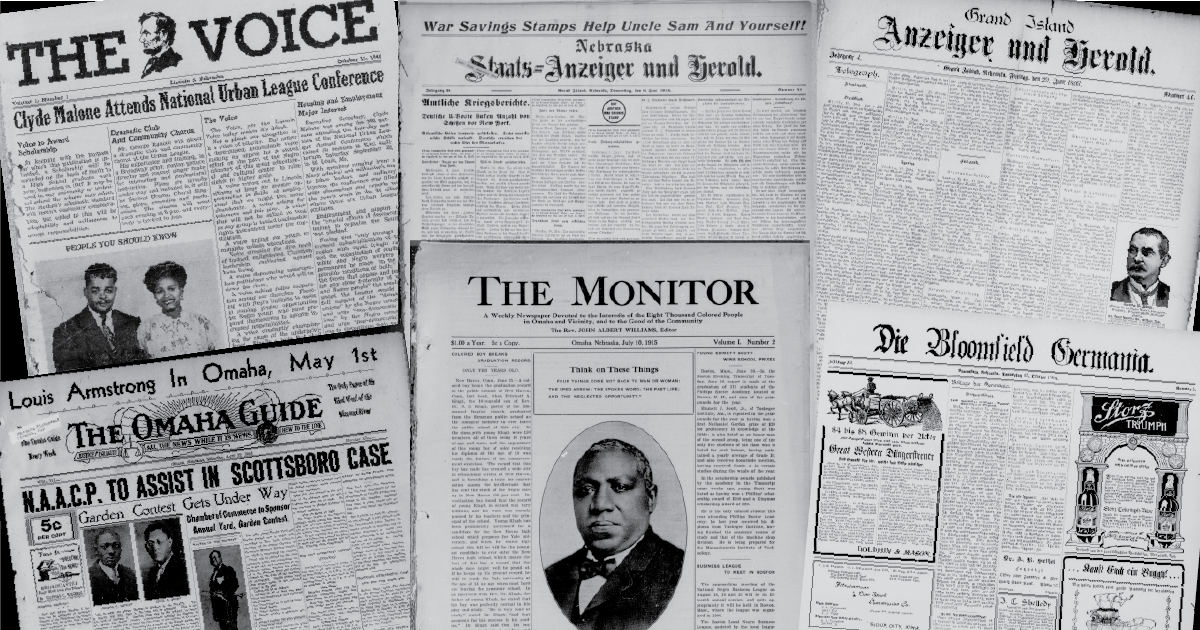
The National Endowment for the Humanities has awarded the University of Nebraska Center for Digital Research in the Humanities $275,000 for continued digitization of historic Nebraska newspapers. The focus of this grant will be on increasing the diversity of newspapers represented to include more foreign language titles as well as papers published by Nebraska’s suffrage proponents.
Since 2007, Nebraska has contributed almost 500,000 pages of Nebraska newspapers to Chronicling America, the Library of Congress’ searchable online database of historic American newspapers from all 50 U.S. states, Washington, D.C., Puerto Rico, and the U.S. Virgin Islands.
Another 100,000 newspaper pages will be added over the next two years courtesy of a fifth grant awarded by the NEH to Laura Weakly, Metadata Encoding Specialist, in the CDRH. Weakly is serving as primary lead for the team on this project cycle, after working under Katherine Walter, the former co-director of the CDRH, who served as the principal investigator on all four of the previous grants.
“The importance of this project is two-fold — contributing to a nationally aggregated and freely available resource and preserving Nebraska newspapers for the long-term,” Weakly said.
In the first 3 cycles of the newspaper project, NEH had institutions focus on digitizing a diverse geographic range of newspapers within each state. Nebraska selected major newspapers from Omaha, Norfolk, Columbus, Valentine, and McCook.
Starting with the fourth grant cycle, the focus is to digitize newspapers of diverse and underrepresented people. Pages from several African American newspapers were digitized including The Omaha Guide and the Omaha Monitor as well as Lincoln’s The Voice. German language newspapers were also added.
In addition to more African American and German newspapers, the team hopes to include titles in Polish and Italian.
Weakly explained the importance of adding the suffrage papers. “One of the early papers we digitized was Edward Rosewater’s Omaha Bee. Rosewater was famously anti-suffrage, while Nebraska had a very strong pro-suffrage movement. Digitizing these papers will balance the views expressed in the Bee to represent a more accurate picture of the debate occurring in Nebraska at that time."
The NEH has also expanded the date range up to 1963, so the project hopes to include World War II-era newspapers in the latest round of digitization.
The advisory board for this project, which includes members from both UNL and the community, will help Weakly and her team prioritize which titles are to be digitized.
“Once our files are sent to the Library of Congress, and checked a final time, they will be added to Chronicling America and Nebraska Newspapers a collaborative website developed by the University of Nebraska–Lincoln and History Nebraska,” Weakly said.
Both research tools are free and accessible on the internet to support historians, genealogists, school children, teachers, and researchers.